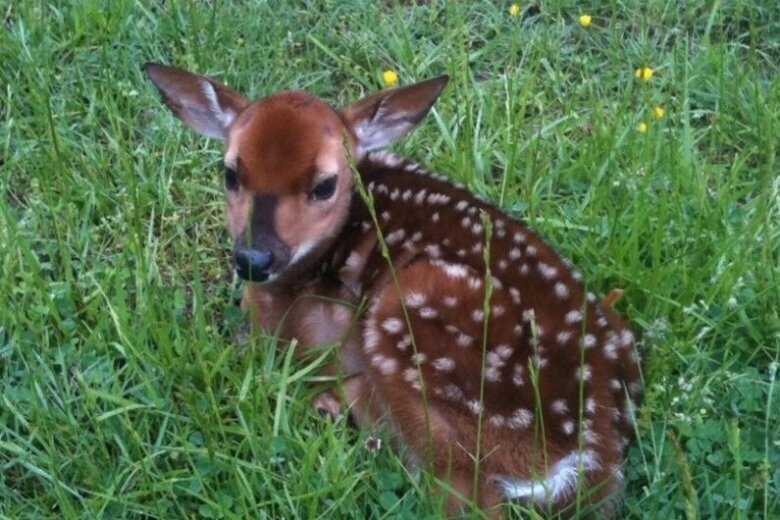
New buds on trees signal a baby boom of wildlife in many backyards across the D.C. area.
Spring is the season that wildlife welcome their furry babies — and also the time Fairfax County’s Animal Protection and Wildlife Management office in Virginia receives an uptick in calls from people reporting young wildlife, said 2nd Lt. Desiree Pitts.
“The baby birds, baby rabbits, fawns and even fox kits are some of the cutest little things,” Pitts told WTOP. “A lot of times, people have the best of intention, but they rescue something that may not have necessarily needed to be rescued.”
So, the unit is sending a warning: don’t touch or move baby wildlife.
Pitts said many pups, chicks and fawns don’t need help from humans.
“When a fawn is by itself, it’s because the mother deliberately put it there,” she said. “It’s a safe location so she can go forage for the day. A young animal’s best chance for survival is to receive natural care from its parents.”
The parent will return to collect its young, she said. But if humans are around, they will stay away, Pitts said.
Until then, Pitts said it’s also helpful to keep pets away from fallen nests or dens with furry babies inside.
“If you find rabbits or squirrels, or any baby animals, and you’re in that phase where you’re waiting for the mom to return, it would be helpful to keep pets indoors,” she said. “Leave the area alone. It’s less likely that the mom is going to return because she’s going to deem it unsafe.”
There are times to call animal protection. Pick up the phone when:
- The animal shows signs of injury such as bleeding, swelling or a broken limb.
- The baby wildlife is very cold, shivering, thin or weak
- It is on the ground unable to move or is nonresponsive
- The animal is featherless or not fully furred
- It shows signs of flies, worms or maggots
- There is a dead parent nearby or parents are separated and cannot be reunited
Another problem the unit sees is people feeding seemingly abandoned wildlife young and touching them barehanded.
“Do not attempt to offer food or water because many animals require special diets,” she said. “Inappropriate food can lead to sickness and death. The goal is to keep wildlife wild.”
Squirrels, red foxes, raccoons, rabbits, skunks, opossums and songbirds are frequently found across the county, according to a Fairfax County police news release.
If you spot an injured animal that needs help in Fairfax County, you can call the police’s nonemergency number at 703-691-2131.
Get breaking news and daily headlines delivered to your email inbox by signing up here.
© 2024 WTOP. All Rights Reserved. This website is not intended for users located within the European Economic Area.









